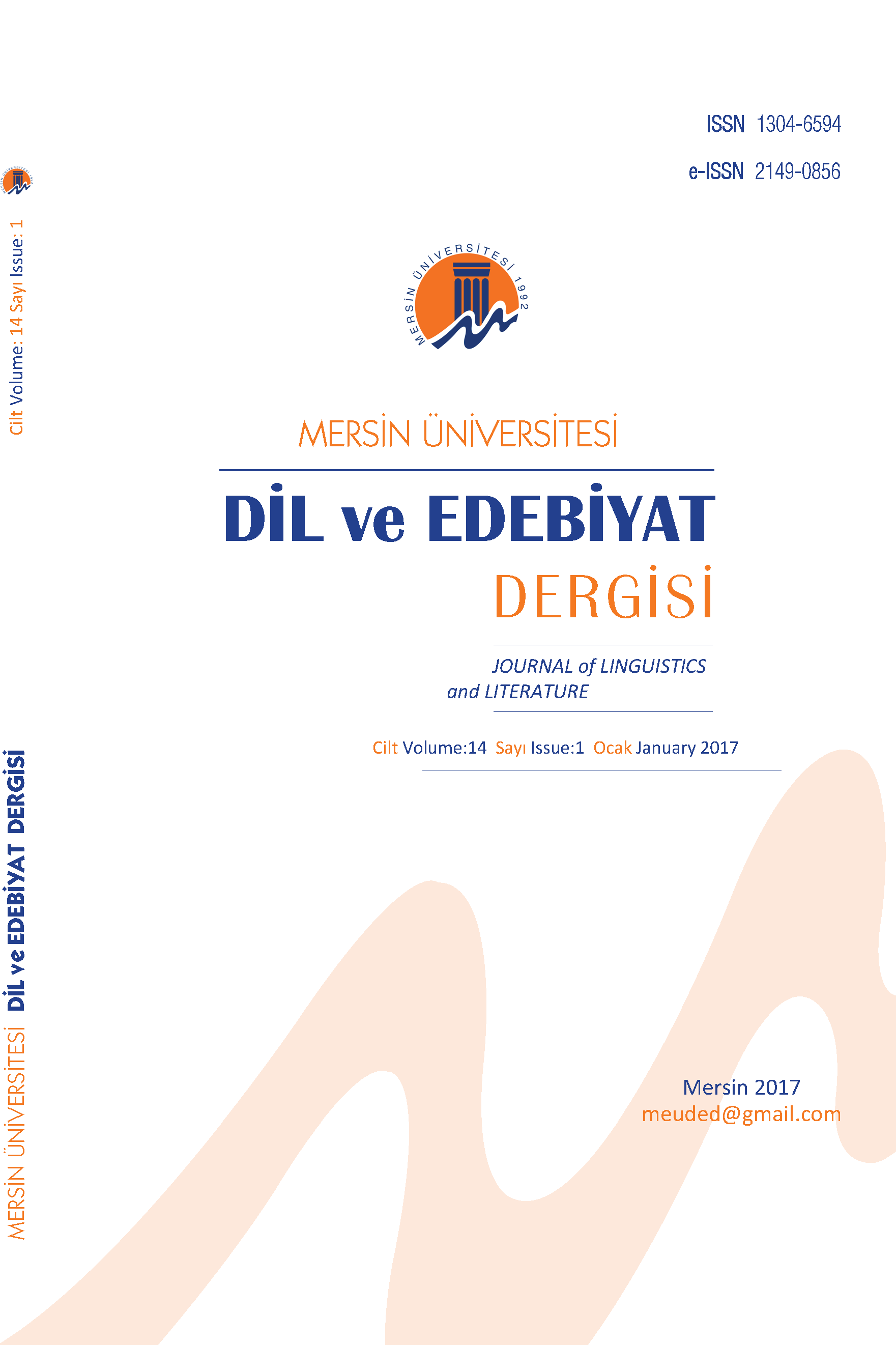Anlamsal ve Edimsel Düzlemde Türkçede Tanıtsallık
In natural languages, evidentiality which is a type of epistemic modalityis the indication of the nature of an evidence for a given statement. Thispaper gives a semantic and pragmatic account of the evidential markers –mIş and –(y)mIş as being contrasted to –DI in Turkish within the frameworks of Possible World Semantics and Speech Act Theory. The paper shows that the evidential markers –mIş and –(y)mIş in Turkish can be analysed as possibility operators at semantic level. The modal force of –mIş can also shift to necessarily truth, which is determined by the type of knowledge source. On the contrary, the perfective marker –DI, as its modal force, indicates necessarily truth. At pragmatic level they can also function as illocutionary operators i.e. modifiers of the sincerity conditions associated with a speech act.
Anahtar Kelimeler:
-
___
- Bybee, J. 1995. Regular morphology and the lexicon, Language and Cognitive, Processes 10: 425-455.
- Chafe, W, ve Nichols, J: (yay.) 1986. Evidentiality: The Linguistic Coding of Epistemology. Norwood: Ablex Publishing Corporation.
- Chafe, W. 1986. Evidentiality in English conversation and academic writing, (İçinde) Chafe, W. and Nichols, J. (Yay.): Evidentiality: The Linguistic Coding of Epistemology Norwood, N.J. Ablex, 261-272.
- Comrie, B. 1976. Aspect. Cambridge: Cambridge University Pres.
- Csató, É. Á. 2000. Turkish mış- and ımış-items. Dimensions of a functional analysis. (İçinde) Johanson and Utas (Yay.), Evidentials: Turkic, Iranian and Neighbouring Languages. Berlin: Mouton de Gruyter. 29-44.
- De Haan, F. 1998. The Category of Evidentiality.
- Faller, M. 2002. Semantics and Pragmatics of Evidentials in Cuzco Quechua. Doktora Tezi, Stanford University.
- Gettier, E. L. 1963. Is Justified True Belief Knowledge?. Analysis 23: 121-123
- Grunina, E. A. 1976. K istorii semanticheskogo razvitija perfekta -misµ. (On the history of the semantic development of the -misµ perfect.) Sovetskaja tjurkologija 1.12-26.
- Izvorski, R. 1997. The present perfect as an epistemic modal. Proceedings of SALT 7. (Yay.) A. Lawson and E. Cho, Stanford University.
- Johanson, L. 2000. Turkic indirectives. İçinde Johanson and Utas (Yay.), Evidentials: Turkic, Iranian and Neighbouring Languages. Berlin: Mouton de Gruyter. 61-88.
- Johanson, L, ve B. Utas, (yay.). 2000. Evidentials: Turkic, Iranian and Neighbouring Languages. Berlin: Mouton de Gruyter.
- Johanson, L. 1971. Aspekt im Türkischen. Uppsala
- Kratzer, A. 1981. The Notional Category of Modality. (İçinde) Words, Worlds, and Contexts.
- New Approaches in Word Semantics, eds. H.J. Eikmeyer and H. Rieser,38-74. Berlin: de Gruyter.
- Kratzer, A. 1991. Modality, (İçinde) A. von Stechow ve D. Wunderlich (Yay..) Semantik: Ein internationales Handbuch zeitgenoessischer Forschung. Berlin: De Gruyter, 639-650.
- Lewis, G. L. 1967. Turkish grammar. Oxford: Clarendon.
- Lyons, J. 1977. Semantics. Cambridge: Cambridge University Press.
- Palmer, F. R. 1986. Mood and modality. Cambridge, England: Cambridge University.
- Palmer, F. R. 2001. Mood and Modality, 2nd ed. Cambridge University
- Slobin, D, ve A. Aksu-Koç. 1982. Tense, Aspect, and Modality in the use of the Turkish evidential. (İçinde) Paul Hopper (Yay..) Tense-Aspect: Between Semantics and Pragmatics. Amsterdam: Benjamins, 185-200.
- Tura, S. S. 1986. Definiteness and Referentiality in Turkish Nonverbal Sentences. (İçinde) Studies in Turkish Linguistics, Slobin, Dan I. and Karl Zimmer (eds.), 165 ff.
- Vanderveken D. 1990-91. Meaning and Speech Acts, Volumes I-II. Cambridge University Press, Cambridge Willet T. 1988. A cross-linguistic survey of the grammaticalization of evidentiality. Studies in Language 12: 51–97.
- Yavaş, F. 1981. On the Meaning of the Tense and Aspect Markers in Turkish. Doktora Tezi.
- ISSN: 1304-6594
- Yayın Aralığı: Yılda 2 Sayı
- Başlangıç: 2004
- Yayıncı: Mersin Üniversitesi
